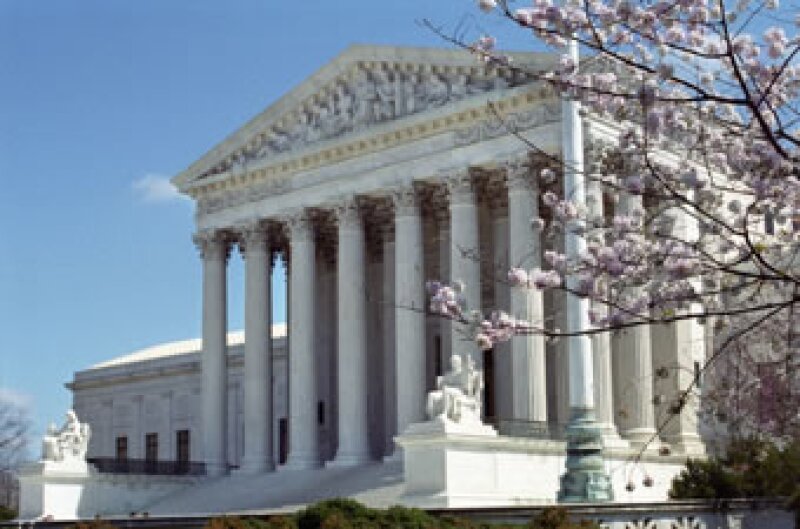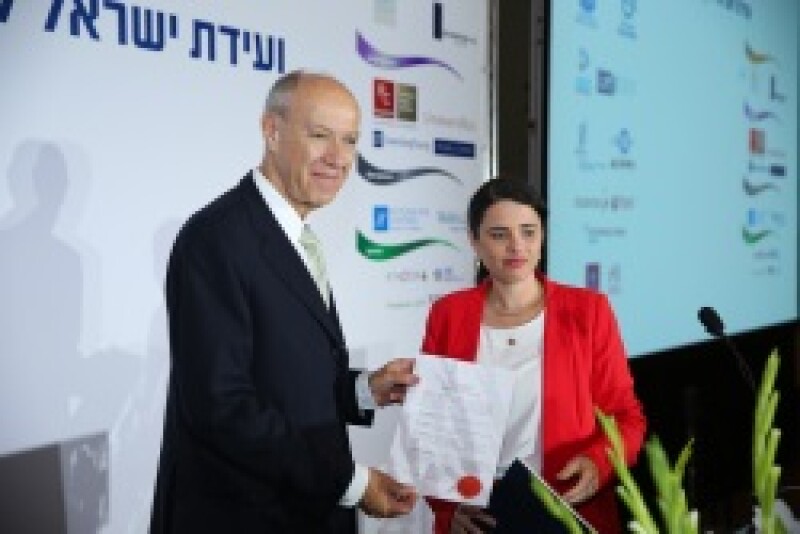Also on the blog this week:
Join our first Africa Roadshow in NYC or via the web
In our news and analysis:
The practical impact of the Trunki case
Interview: IP Federation President Carol Arnold of Shell
“Far-reaching impacts” of Federal Circuit ruling on ANDA personal jurisdiction
How to manage brand protection internally
The advantages of numeral word labelling
How Scotch Whisky protects its GI - report from the ITMA Spring Meeting
Horacio Gutierrez takes Spotify role, and other US people moves
Samsung v Apple at the US Supreme Court – the issues to watch
Venue Act introduced in US Senate to change patent venue law
Sequenom petitions Supreme Court

Pharmaceutical company Sequenom has filed a petition for cert to the Supreme Court, asking for review of a controversial Federal Circuit decision last year.
The appeal court disappointed many patent practitioners in Ariosa v Sequenom, in which it held Sequenom’s diagnostic method claims invalid under Section 101..
“With no relief from Congress on the horizon, this filing puts at least the near-term future of diagnostic method patents at the mercy of the Supreme Court,” noted Foley & Lardner’s Courtenay Brinckerhoff on the PharmaPatents blog. “Will the Court agree that its § 101 jurisprudence has been taken too far, or will it decide that diagnostic methods really cannot be patented?”
The brief presents the following question:
Whether a novel method is patent-eligible where: (1) a researcher is the first to discover a natural phenomenon; (2) that unique knowledge motivates him to apply a new combination of known techniques to that discovery; and (3) he thereby achieves a previously impossible result without preempting other uses of the discovery?
Sequenom argues that the Federal Circuit’s opinion “has dangerously overextended Mayo.”
In its brief it argues that cert should be granted because of the support it has (12 amicus briefs have been filed in support), the threat the decision poses to the predictability of the US patent system, and the effect it has in placing the US out of line internationally on the issue of patent eligibility.
DOJ files Cuozzo brief
In other Supreme Court IP news, the US Department of Justice last week filed its brief in Cuozzo v Lee, reports the Patents Post-Grant blog.
The government argues that the broadest reasonable interpretation is applicable in inter partes review proceedings at the PTAB. The DOH also argued that IPRs include many mechanisms that differ from a lower evidentiary standard.
Israel joins Marrakesh
WIPO last week received Israel’s instrument of accession to the Marrakesh Treaty from the country’s justice minister Ayelet Shaked.

It becomes the 16th country to the join the treaty, the full name of which is the Marrakesh Treaty to Facilitate Access to Published Works for Persons Who Are Blind, Visually Impaired or Otherwise Print Disabled.
The treaty needs 20 ratifications to come into force.
This may take some time, however.
Germany’s Julia Reda, the Pirate Party’s sole representative in the European Parliament, earlier this month published a blog post outlining why some EU governments including Germany and the UK are dragging their feet over the Marrakesh Treaty, which was finalised in June 2013.
Don’t mention the IP law
Former Monty Python member John Cleese this week said he may sue an Australian theatre company for a “shameless rip-off” of the 1970s sitcom Fawlty Towers, which he created with Connie Booth, reports the BBC.
Cleese said the Faulty Towers Dining Experience had not sought permission to use its title, themes or characters.
Dear David Seems they thought that by not asking, and by changing the 'w' to a 'u',they'd be in the clear! Hilarious https://t.co/Px0xQxKAMr — John Cleese (@JohnCleese) March 23, 2016
The Australian show has been running since the early 1990s, and has been staged in Sydney, London and elsewhere. Reports claim the show makes $1.4 million a year. However, its production company Imagination Workshop told the BBC it makes "nothing like" those revenues.
"We are not an unauthorised rip-off show – anyone who knows the law in this area will understand that we do not require authorisation to use the concept of Fawlty Towers,” the company told the BBC.
Koh stays Apple case

Following the Supreme Court taking on Samsung’s appeal of its design patent dispute with Apple last week, Judge Lucy Koh has stayed a case between the two companies.
The retrial was due to start on March 28 in the Central District of California, reports Reuters.
The new case was to hear damages questions remaining from the 2012 trial.
“The question of the proper measure of damages from these design patents is central to the 2016 damages retrial, as design patent damages make up the bulk of Apple’s damages claims, wrote Koh.
McCartney moves to reclaim Beatles publishing rights
Sir Paul McCartney is trying to reclaim the publishing rights to The Beatles’ back catalogue in the US, reports Billboard.
McCartney has filed a termination notice for 32 songs with the US Copyright Office. The US Copyright Act gives writers the chance to reclaim rights after 56 years, meaning the Beatles songs begin to become available in 2018. .
Many of the 32 songs were released in 1962, 1963 and 1964, although 15 of them date from 1969 and 1970, such as Come Together and Why Don’t We Do It In the Road.
Under a deal cut early in The Beatles’ career John Lennon and McCartney were given a 15% share of the publishing company formed for the band, with George Harrison and Ringo Starr reportedly receiving 0.8%.










